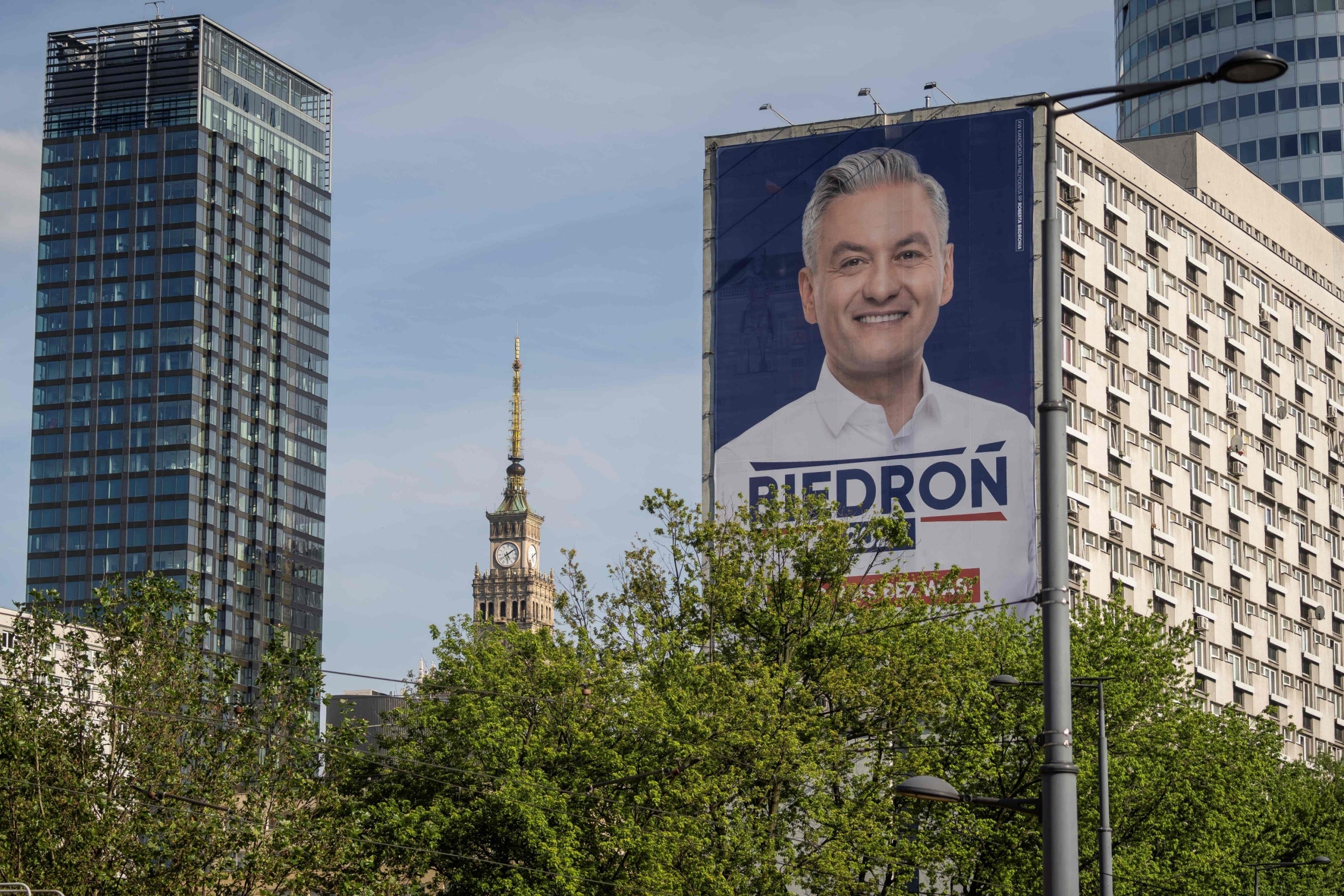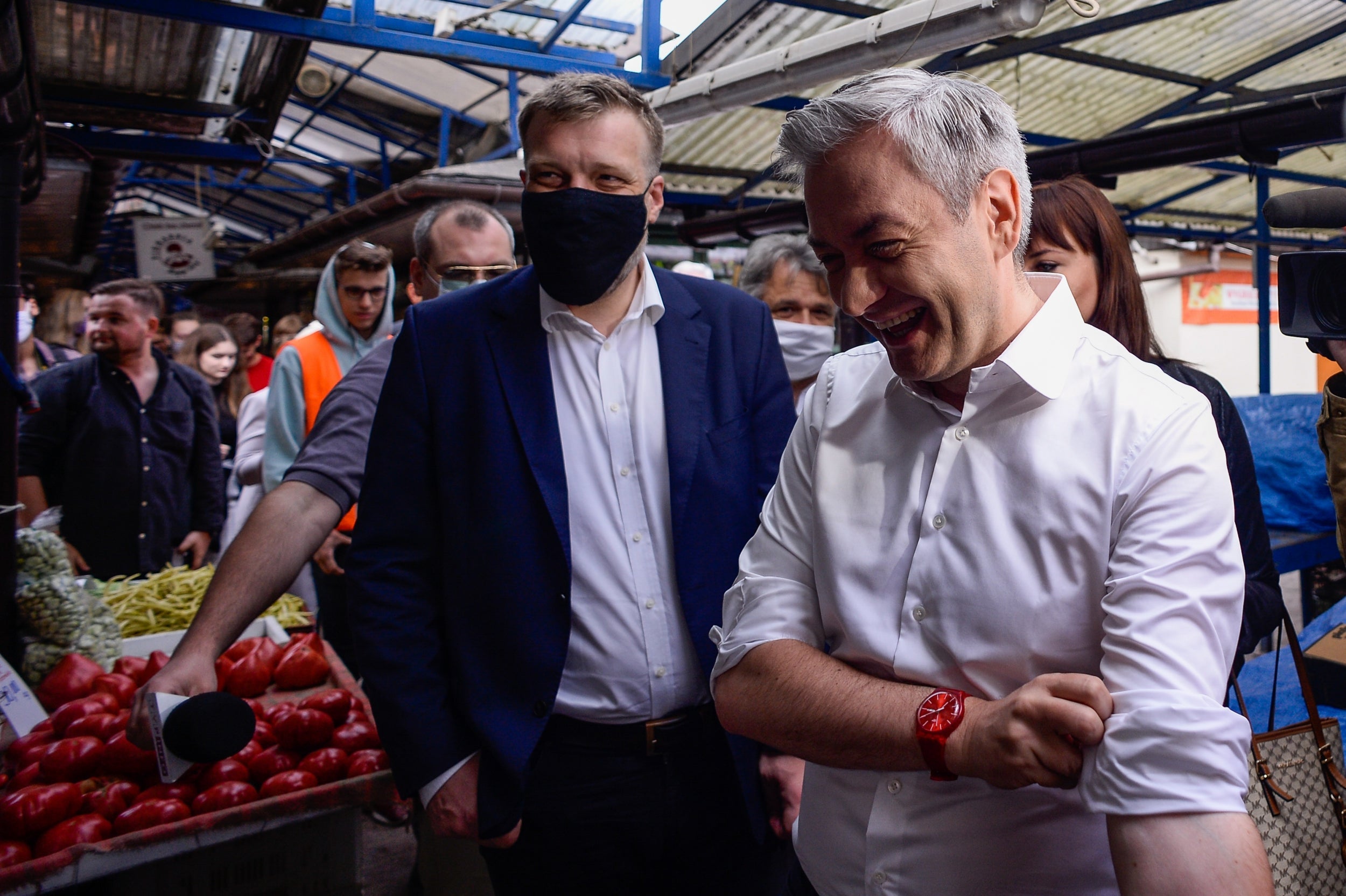Poland presidential election: Campaign of first openly gay candidate shines light on EU’s ‘worst country to be LGBT+’
Robert Biedroń’s candidacy in today’s election is a beacon of hope – but also comes at a time of severe backlash against Poland’s LGBT+ community, as Constantin Gouvy reports

For Hubert Sobecki, Poland’s LGBT+ community is facing its “darkest hour”.
“We have gone through some tough challenges before, but this is the most trying time I’ve experienced since we set up the organisation 10 years ago,” the 37-year-old co-founder of the LGBT+ rights grassroots organisation Love Does Not Exclude tells The Independent, on the eve of Poland’s presidential election.
At first glance, Sobecki’s comments might seem counterintuitive; today’s election represents a historic moment for Poland’s LGBT+ community, with the country’s first openly gay presidential candidate Robert Biedron hitting the campaign trail.
But at the same time, the ruling right-wing populist party Law and Justice (PiS) has redoubled its attacks against the country’s LGBT+ community, with president Andrzej Duda earlier this month labelling “LGBT ideology... more destructive than communist indoctrination”. Duda vowed in his campaign’s “Family Charter” to ban marriage for gay couples, adding to a long list of discriminatory official measures and statements that have stirred outrage among local and international rights groups, and drawn rebuke from the European Commission.
For an embattled LGBT+ community, Biedron’s decision to run has offered a beacon of hope – last week he pledged to introduce a full marriage equality bill in parliament, even if such a move would be symbolic and unlikely to pass in the short term.
“His candidacy means a lot to the LGBT+ community,” said 28 year-old Marek Szolc, an opposition councillor for Warsaw who came out during his election campaign in late 2018, “before all of this hatred built up”. “For young people identifying as LGBT+, it is a sign they are represented, and that they too one day could run for office,” he said.
Activists trace the “hatred” Szolc refers to back to when the Law and Justice party came to power in 2015. The situation dramatically worsened in February 2019, however, after the then-mayor of Warsaw and opposition leader Rafał Trzaskowski signed a pro-LGBT+ “Declaration” put together by civil society groups, which called among other things for anti-discriminatory and sexual education in schools in line with WHO standards.
“It was a brave move. But he unwittingly made LGBT rights the theme of the presidential campaign,” says Jakub Urbanik, a middle-aged LGBT+ activist and law professor at Warsaw University. Suddenly, the vague unease of the country’s conservative segments was crystallised against a single target, he says, and the ruling party had enough ammunition to run a hate-based campaign.
Scores of cities and provinces last year declared themselves “LGBT-free zones”, emboldened by homophobic statements from the ruling party leader Jarosław Kaczyński that LGBT+ people were “against the family” and “against children”. In May this year, Rainbow Europe declared Poland to be the least LGBT+ friendly nation in the EU.
While the use of homophobia as a political tool in Poland is nothing new – with “almost artistically absurd and flimsy accusations” levelled against the already marginalised minority – the practice reached “fever pitch” ahead of the election, explains Kyle Knight, senior researcher for LGBT+ rights at Human Rights Watch. The same pattern could often be observed ahead of elections all over the world, he notes.

“I don’t think [president] Duda is a homophobe,” says professor Urbanik. “I think it’s worse: he is cynically using hate speech to further his political interests. If you tell citizens their hate is justified, you ultimately enable their violence. This is the first time in 15 years I am afraid to walk in the streets as a gay man.”
While many LGBT+ activists agree on the symbolic significance of Biedron’s candidacy, it does not necessarily make him their default candidate. “Ideally, Biedron’s sexual orientation should not matter: I shouldn’t need a gay man to represent me,” says Urbanik.
For Sobecki, the real problem with the intense conservative backlash over the past year has been that it deterred all political forces other than Biedron from further advocacy for LGBT+ rights. Trzaskowski, who is now the candidate for the main opposition Civic Coalition, has “barely even mentioned the word LGBT” since the Declaration, and the issue has been all but absent from his presidential campaign, Sobecki says.
Despite their enthusiasm for Biedron, many in the LGBT+ community accept he is unlikely to make it through the first round of the election, with most polls putting him on around 4 per cent. Voting on Sunday began at 7am local time and will conclude at 9pm, with exit polls expected soon after.
That leaves members of the LGBT+ community with an unenviable choice. “I know what Duda’s offer is: either vanish or leave the country,” Sobecki says. “What’s Trzaskowski’s position? Nobody knows: he hasn’t spoken about LGBT rights for over a year. But for us, he is the lesser of two evils. If Duda is death, Trzaskowski is silence.”
HRW’s Knight says it would be a “scary moment” if Duda was re-elected off the back of “a hate-based campaign”. But he adds that even if Biedron leaves the race this weekend, “his candidacy will have served to show LGBT are people, not an ideology, as the government contends. It shows how far things have come in Poland, and how far they still have to go.”
In an exit poll released on Sunday night, Biedron was projected to win 2.9 per cent of the vote. Duda and Trzaskowski are expected to compete in a run-off next month after both failing to garner the required 50 per cent to win outright, with Ipsos projecting they had won 41.8 per cent and 30.4 per cent respectively.
Join our commenting forum
Join thought-provoking conversations, follow other Independent readers and see their replies
Comments